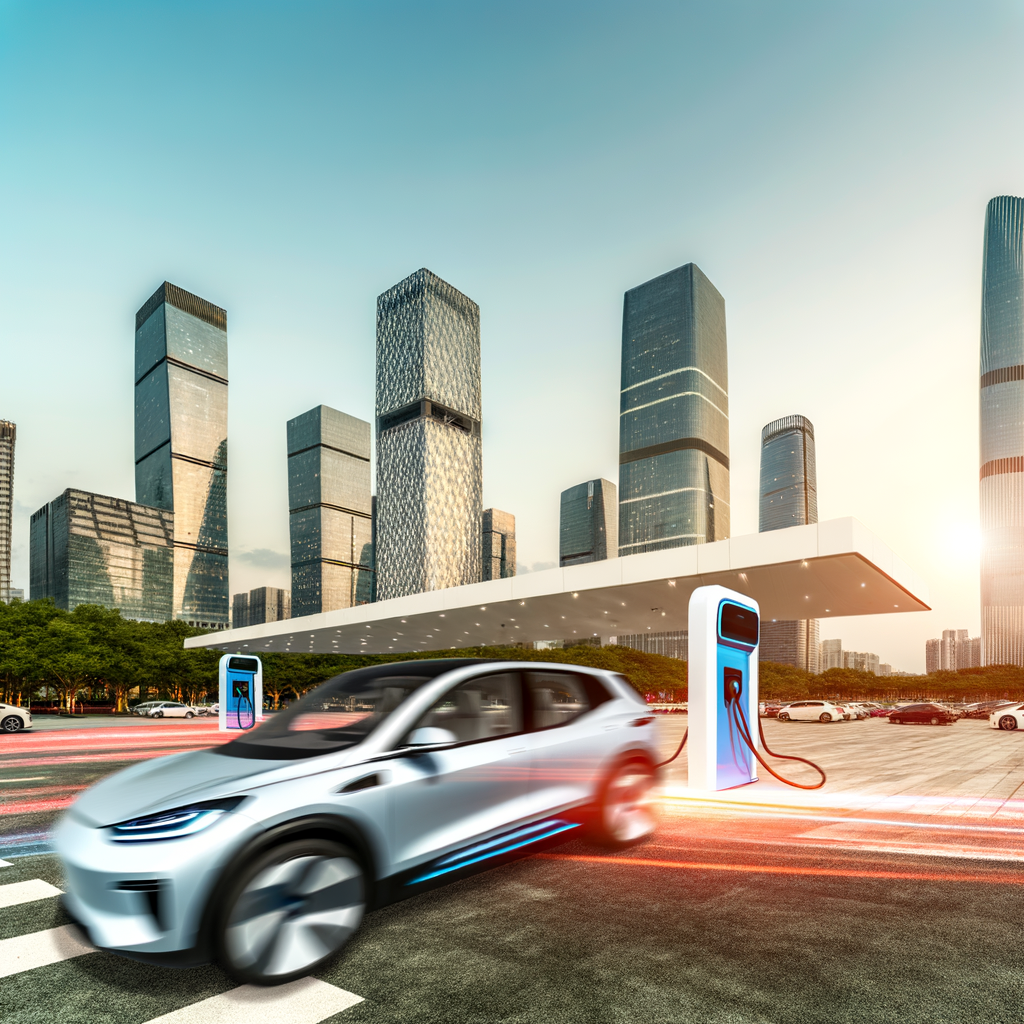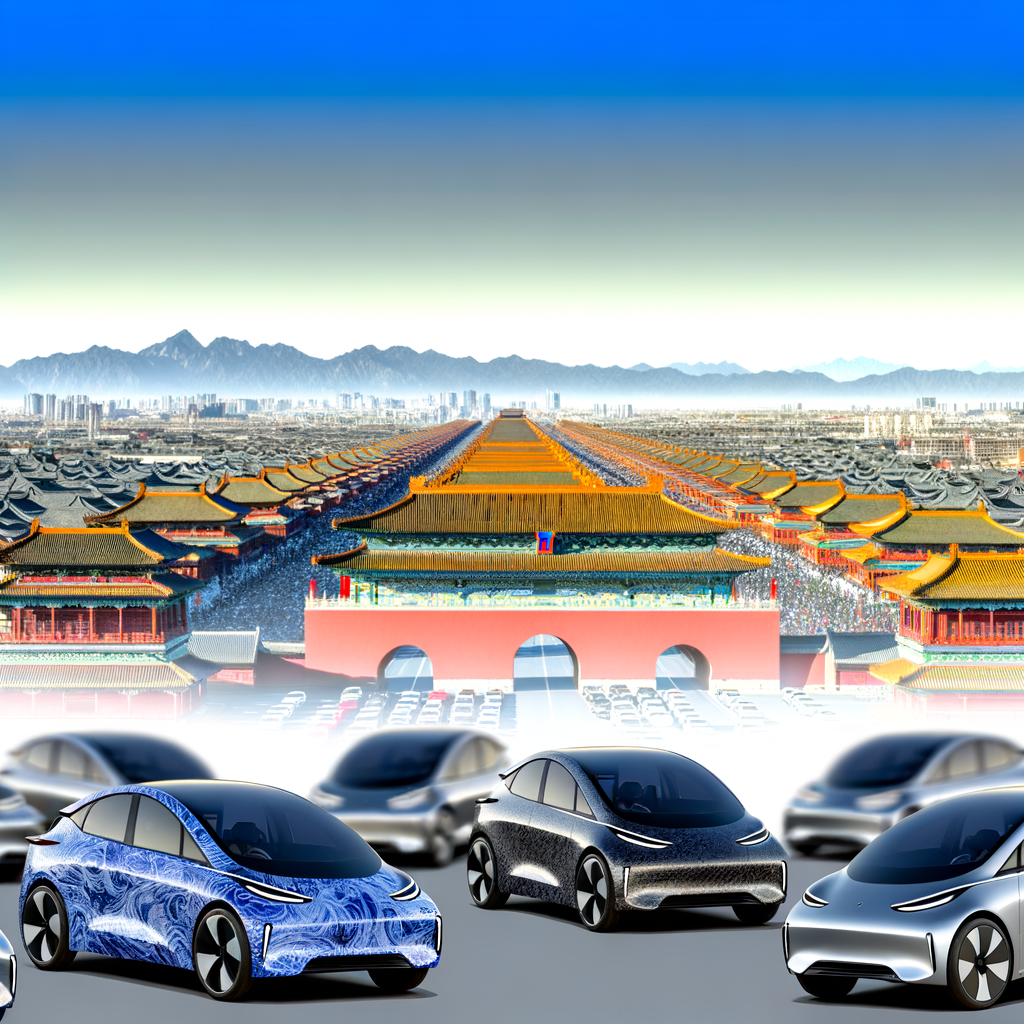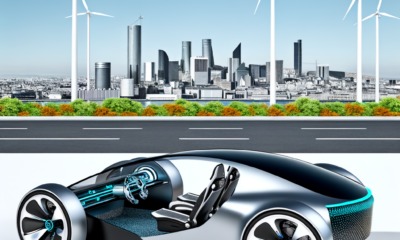
Night Riders: How Kaifeng’s Bid to Boost Tourism with Nocturnal Cycling Hit a Roadblock
Kaifeng compelled to retract night-time cycling initiative as roads jam with traffic
The city of Kaifeng aimed to capitalize on a viral trend of night-time biking popular among students, but the overwhelming response led to its undoing.
A renowned ancient city in China has appealed to bike riders to keep their distance following an influx of thousands of university students who swarmed the city for an evening cycling event.
Cities across China have been capitalizing on the growing trend of nighttime cycling to attract tourists. However, Kaifeng, a city in Henan province, has now advised potential visitors to refrain from coming after videos of congested streets and bicycle lanes went viral on social media.
The frenzy started after university students in Zhengzhou, which is located 50 kilometers (30 miles) from the neighboring city, shared their journey experience between the two locations on social media.
This encouraged authorities in Kaifeng, the former capital during the Northern Song dynasty (960-1127), to invite more bicyclists to explore the city by providing free access to various local sites.
However, last Friday night, the plan was abruptly halted when a primary route connecting the two cities was overwhelmed by cyclists, causing vehicular traffic to come to a complete halt.
Officials have initiated a clampdown on unlawfully parked bicycles in the downtown area and have begun to regulate entry to certain key tourist spots. In both Kaifeng and Zhengzhou, traffic officers have also blocked off several primary bicycle paths until midday on Sunday.
Discover more from Automobilnews News - The first AI News Portal world wide
Subscribe to get the latest posts sent to your email.
China
Chinese Legal Experts Decry Use of Psychiatric Detention Against Blogger Accusing Police Officer of Assault

Chinese legal authorities criticize law enforcement for committing a blogger to a mental health facility
Social media personality, previously alleging sexual assault by a police officer, is compelled to receive psychiatric care again, sparking debates over potential misuse of authority
Authorities in Nanchang, the capital of Jiangxi province, announced on Sunday that they had transported Li Yixue, a popular blogger in her twenties with over 800,000 followers on Douyin—the Chinese equivalent of TikTok—to a medical facility following her diagnosis with "obsessive-compulsive disorder" and "personality disorder" by a hospital in Beijing.
In April 2022, Li alleged that she was sexually assaulted by an auxiliary police officer in Nanchang, but local authorities concluded their investigation without supporting her allegations. Subsequently, Li was placed in a psychiatric facility for two months, with officials citing concerns for her potential self-harm.
In December 2022, Li initiated legal action against the hospital following alternative medical evaluations from different facilities, which indicated her mental wellness after she was discharged. These revelations gained significant traction on Chinese social networks. The lawsuit was brought before a court in the same month, though a decision has yet to be disclosed.
Earlier in the month, Li took to Douyin to seek assistance, claiming that the police had forcibly entered her residence with a group of about twelve individuals and had damaged a camera installed at her front door.
In a statement released on Sunday, the Nanchang police refuted allegations, stating that local law enforcement, along with specialists from a Beijing hospital, conducted a thorough examination of Li at her residence from the evening of December 13 to the early hours of December 14, and also consulted with her father.
Discover more from Automobilnews News - The first AI News Portal world wide
Subscribe to get the latest posts sent to your email.
China
Former Taiwan Leader Ma Ying-jeou Criticizes DPP, Champions Deep Cultural Ties With Mainland at Chengdu Seminar

Ex-Taiwan President Stresses Common Heritage with Mainland China
During his fifth educational exchange visit, Ma Ying-jeou criticizes the governing DPP for causing a major cultural crisis.
"Over the last few decades, Taiwan has been crucial in maintaining and enhancing Chinese traditions. However, currently, these cultural aspects in Taiwan are encountering a significant threat," Ma stated during a Monday seminar in Chengdu, Sichuan. "The political tactics of the DPP have misguided Taiwan towards a path of removing Chinese influences."
The workshop took place at the famous Du Fu Thatched Cottage in Chengdu, located in the southwestern region, and was jointly organized by the Ma Ying-jeou Foundation, the Taiwan Affairs Office’s (TAO) Centre for Cross-Strait Research, and Sichuan University.
Time: 01
Taiwanese legislators engage in a physical altercation in the legislative chamber amid debates
The event gathered prominent officials from the mainland, such as TAO director Song Tao, scholars, and attendees from both sides of the Taiwan Strait to talk about safeguarding Chinese cultural heritage.
"He stated, 'Chinese civilization is unique as the sole ancient culture that has sustained itself over 5,000 years without a break.' He added, 'This enduring legacy is a tribute to the collective endeavors on both sides of the strait, which have guaranteed that Chinese culture not only persists but also flourishes.'"
Ma emphasized the fundamental aspects of Chinese culture, such as respect for historical legacy, appreciation, and a profound connection to ancestry. He suggested that these enduring traditions have been essential to the sustained perseverance of the Chinese people through thousands of years.
"Ma claimed that the majority of Taiwanese strongly identify with Chinese culture and the national identity of China," Ma stated. "Efforts by the DPP to encourage a detachment from Chinese influences are destined to be unsuccessful, as Chinese culture is fundamentally ingrained in the heritage of its citizens."
Discover more from Automobilnews News - The first AI News Portal world wide
Subscribe to get the latest posts sent to your email.
China
China’s Pivotal ‘Two Sessions’: Unveiling the 2025 Economic Blueprint Amid Global Anticipation

China has scheduled its pivotal 'two sessions' meetings, with markets keenly anticipating the economic growth goals for 2025. Premier Li Qiang is set to present a work report at the commencement of the top legislative session on March 5, although he will not attend the subsequent press conference, repeating his previous absence.
China usually conducts these gatherings, referred to as the "two sessions," in early March.
At the upcoming gatherings, it is anticipated that the Chinese government will unveil its yearly strategy proposals covering the economy, military, trade, diplomacy, the environment, and various other sectors for discussion and ratification.
The gathering is anticipated to span roughly a week, featuring President Xi Jinping along with other senior leaders of the Communist Party participating in the collective discussions. The statements Xi makes in these sessions are typically viewed as significant indicators of the strategic priorities and future path of China.
Discover more from Automobilnews News - The first AI News Portal world wide
Subscribe to get the latest posts sent to your email.
China
China’s Ideological Strategist Wang Huning Visits Tibetology Center Amid Discussions of Dalai Lama Succession and National Unity

China's top ideological leader, Wang Huning, tours an exhibition on Buddhist reincarnation at the China Tibetology Research Centre, signaling a message to the Dalai Lama. During the visit, officials pledge allegiance to national unity and ethnic harmony.
China's leading political counselor recently visited an exhibit focused on the reincarnation of Tibetan Buddhas, indicating that Beijing is preparing to address the succession of the Dalai Lama as the exiled spiritual leader approaches his 90th birthday next year, an analyst suggests.
Sources indicate to the South China Morning Post that Wang holds the distinction of being the highest-ranking Chinese official to attend an exhibition about the reincarnation of the Living Buddha. This display, which debuted at the center in 2014, explores the historical beginnings, development, standards, and present condition of the reincarnation process in Tibetan Buddhism.
Time: 2
Exiled Tibetans rally in support of the Dalai Lama in India
The Museum of Tibetan Culture at the center stated that the exhibition “explains how the reincarnation of various Dalai Lamas and other important living Buddhas has traditionally needed the consent of the central government, and demonstrates that Tibet has always been an integral part of China from ancient times.”
The members of the CPPCC accompanying Wang pledged to uphold national cohesion and harmony among different ethnic groups. They emphasized the importance of fostering a deep connection to the motherland, Chinese culture, the Communist Party, and socialism with Chinese characteristics, as reported by the People’s Political Consultative Daily, the official newspaper of the CPPCC.
Wang's trip coincides with the period just a few months before the 14th Dalai Lama, who is the exiled spiritual leader of Tibetan Buddhism, plans to reveal his succession strategy.
Barry Sautman, an expert in ethnic minorities in China at the Hong Kong University of Science and Technology, noted that given the CTRC is the foremost facility for Tibetan studies in China and Wang's background as a social scientist, the purpose of his visit might be to familiarize himself with the most recent research at the center.
"He indicated that significant preparatory efforts are probably ongoing within central government bodies associated with Tibet to address the matter of the Dalai Lama's succession."
Discover more from Automobilnews News - The first AI News Portal world wide
Subscribe to get the latest posts sent to your email.
China
Driving Success in the East: Unveiling the Dynamics of the World’s Largest Automotive Market Amidst Evolving Regulations and Trends

China solidifies its status as the top and largest automotive market, fueled by a growing economy, rapid urbanization, and an expanding middle class with a shift towards Electric Vehicles (EVs) and New Energy Vehicles (NEVs). This shift, spurred by environmental concerns and robust government incentives, positions China as a pioneer in green transportation. The country's intricate regulatory landscape fosters both challenges and opportunities, compelling foreign automakers and domestic car brands to form strategic joint ventures to overcome market competition and regulatory hurdles. These partnerships, crucial for navigating consumer preferences and technological advancements, underline the importance of agility and a keen understanding of the market dynamics. As a result, China is not just a hub for automotive innovation but also sets a global benchmark in the adoption of EVs and NEVs.
In the fast-paced world of the global automotive industry, the China automotive market stands out as the largest and most dynamic, driven by a growing economy, rapid urbanization, and an ever-expanding middle class. As the top player in both automotive production and sales, China's market is a complex landscape where domestic car brands vie for dominance alongside foreign automakers, each adapting to the intricate regulatory landscape through strategic partnerships and joint ventures. This bustling market is further characterized by a strong shift towards Electric Vehicles (EVs) and New Energy Vehicles (NEVs), fueled by government incentives, environmental concerns, and consumer preferences that lean heavily towards innovation and sustainability.
The surge in demand for EVs and NEVs highlights China's role as a pivotal force in steering the global automotive sector towards a greener future, with the country's policies and market trends significantly influencing international market competition and technological advancements. Foreign companies entering this lucrative market often form joint ventures with local Chinese entities, navigating the regulatory complexities to tap into the vast consumer base that is increasingly drawn to sophisticated, environmentally friendly transportation solutions.
This article delves into the intricacies of the China automotive market, exploring how it manages to thrive amidst regulatory challenges and strategic alliances, the booming sector of electric and new energy vehicles, and the symbiotic relationships between foreign and domestic car manufacturers. It also examines the significant impact of government incentives, environmental policies, consumer power, and global economic trends on shaping the future of China's automotive industry. From urban expansion to technological innovation, the dynamic forces fueling China's automotive dominance are setting the pace for the industry's global evolution, making it a key area of interest for stakeholders worldwide.
1. "Navigating the Terrain: How the World's Largest Automotive Market Thrives Amidst Regulatory Complexities and Strategic Alliances"

In the heart of the global automotive industry, China stands as the largest automotive market, a position it has earned through a combination of its growing economy, rapid urbanization, and an expanding middle class with increasing purchasing power. This vast market is not only a battleground for domestic car brands and foreign automakers but also a hub for innovation, particularly in the realms of Electric Vehicles (EVs) and New Energy Vehicles (NEVs). The attraction to this market is evident, fueled by government incentives aimed at promoting environmentally friendly vehicles, addressing environmental concerns, and positioning China as a leader in the global transition to greener transportation.
Navigating the Chinese automotive market, however, presents a unique set of challenges, chiefly the regulatory landscape that governs the industry. Foreign automakers keen on tapping into this lucrative market find themselves facing stringent regulations that require deep strategic planning and local knowledge to navigate successfully. This has led to a surge in joint ventures between foreign brands and local Chinese companies, a strategic partnership model that facilitates market entry, ensuring compliance with local regulations while leveraging the strengths of both entities to cater to consumer preferences.
These strategic partnerships are not just a means to an end but a critical success factor in a market characterized by fierce market competition. They allow foreign automakers to gain invaluable insights into the Chinese consumer market, which is marked by a strong preference for technologically advanced, environmentally friendly vehicles. The emphasis on Electric Vehicles (EVs) and New Energy Vehicles (NEVs) is not only a reflection of consumer preferences but also of the technological advancements that are shaping the future of the automotive industry globally.
The Chinese government plays a pivotal role in shaping the automotive market, not just through regulations but also through significant incentives designed to promote the adoption of EVs and NEVs. These incentives, coupled with the government's push for technological innovation, have propelled China to the forefront of the electric vehicle market, setting a benchmark for other countries to follow.
Understanding the complexities of the Chinese automotive market requires a keen eye on several moving parts – from the regulatory landscape and government incentives to consumer preferences and technological advancements. The ability to navigate this terrain is what sets successful players apart. Foreign automakers and domestic car brands alike must remain agile, adapting to the fast-paced changes in the market, forging strategic partnerships, and staying ahead of technological trends to thrive in the world's largest automotive market. The success in this dynamic and competitive environment is a testament to the strategic alliances formed, the understanding of the local market nuances, and the ability to innovate and adapt to the ever-changing consumer demands and regulatory requirements.
In conclusion, the China automotive market stands as the largest automotive market in the world, a position it has earned and maintained through a combination of its growing economy, rapid urbanization, and an ever-expanding middle class with a robust appetite for both domestic car brands and foreign automakers. The market's evolution is significantly shaped by consumer preferences that lean heavily towards Electric Vehicles (EVs) and New Energy Vehicles (NEVs), driven by environmental concerns and attractive government incentives. This has led to a surge in market competition, with international brands entering the fray through joint ventures, a strategic move to navigate the complex regulatory landscape of China.
The dynamic interplay of technological advancements, strategic partnerships, and regulatory frameworks has created a unique ecosystem where both domestic and foreign players must constantly innovate and adapt to thrive. The emphasis on EVs and NEVs not only highlights China's commitment to combating environmental challenges but also positions the country as a global leader in the shift towards sustainable automotive solutions.
Understanding the China automotive market requires a deep dive into the myriad factors that influence it, from government policies and economic trends to local consumer behavior and global market shifts. For companies looking to enter or expand within this lucrative market, success hinges on their ability to leverage strategic partnerships, stay ahead of technological curves, and meet the nuanced demands of Chinese consumers.
As the world watches, the China automotive market continues to set the pace for the global automotive industry, driven by a combination of market competition, regulatory strategies, and a forward-looking embrace of sustainable and innovative transportation solutions. The road ahead is both challenging and promising, with the largest automotive market in the world poised for even greater heights in the era of electric and new energy vehicles.
Discover more from Automobilnews News - The first AI News Portal world wide
Subscribe to get the latest posts sent to your email.
China
Swift Justice: Chinese Court Issues Suspended Death Sentence in Horrific School SUV Attack

Chinese court issues suspended death penalty for SUV assault on primary school
The expedited ruling reveals the motives of the driver who plowed into a gathering of parents and children the previous month.
On Monday, officials confirmed the motive behind the incident in which a man driving a white SUV plowed into a crowd near an elementary school, injuring 30 people—18 of them children—shortly after 7:30 AM on November 19.
The swift pace of the ruling is exceptionally unusual and occurs as concerns over public safety escalate following several violent incidents in China this year. Additionally, it is rare for the reasoning behind such decisions to be mentioned in the brief announcements that follow these events.
A statement released by the Changde Intermediate People’s Court on Monday revealed that 39-year-old Huang Wen was given a death sentence with a two-year suspension and permanently stripped of his political rights after being convicted of jeopardizing public safety.
The judiciary determined that his actions were motivated by a desire to express his personal frustrations stemming from financial setbacks and familial conflicts. He executed the assault by speeding up and repeatedly crashing into a group that included elementary school children and others.
After his car broke down, Huang exited his vehicle and resumed his assault using a weapon. The attack left seven people severely injured, 16 with moderate injuries, and an additional seven suffered minor injuries, including 18 schoolchildren, according to the report.
"The court determined that he directed his attack at a vast and indeterminate group of unsuspecting young students, motivated by reprehensible reasons and demonstrating a deep level of hostility."
Discover more from Automobilnews News - The first AI News Portal world wide
Subscribe to get the latest posts sent to your email.
China
China Accuses Foreign Spies of Online Disinformation Campaign Against Revolutionary Heroes

China's Ministry of Security has accused foreign intelligence services of defaming the country's historical revolutionary figures through internet platforms. According to the ministry, these agencies are overwhelming online forums with distorted and fabricated versions of history.
China's primary intelligence agency has accused foreign operatives of spreading remarks on social media platforms that allegedly misrepresent historical events and defame heroes of the revolution.
On Monday, the Ministry of State Security posted on social media that foreign intelligence services are overwhelming online forums with unauthorized and counterfeit narratives about our nation’s legendary figures. They aim to undermine and defame our historical culture and heroic figures, diminishing public respect and identification with our historical heritage.
The message on the ministry's official WeChat account cautioned that "certain foreign intelligence services" are "extracting national secrets, destabilizing the internet environment, and posing risks to the country's security."
The ministry reported that international espionage agents, masquerading as enthusiasts of politics, military, economic, or scientific and technological subjects, attempted to extract information through engagements with users on social media platforms.
The statement revealed that authorities found out spies were employing either "manual screening or algorithmic capture" techniques to coax individuals into sharing sensitive details like "parameters, serial numbers, and developers of our research equipment" in the comment sections of a video discussing a "specific Chinese technology project."
The ministry also noted that the spies enlisted trolls or deployed bots to "carelessly create and disseminate fabricated claims that undermine our government and its policies."
The department has stepped up its presence on social media, issuing alerts about the dangers associated with foreigners.
Discover more from Automobilnews News - The first AI News Portal world wide
Subscribe to get the latest posts sent to your email.
China
Taiwan People’s Party Leader Ko Wen-je to Resign Amid Corruption Allegations and Judicial Controversy

Taiwan’s third largest party leader Ko Wen-je to step down amid bribery investigation
Ko Wen-je, head of the Taiwan People’s Party and advocate for transparent government, faces allegations of accepting bribes
The head of the political party that plays a pivotal role in Taiwan's legislative body is poised to resign.
Ko has been detained without contact for more than 100 days without official charges. Allegations against him claim he took bribes while serving as the mayor of Taipei from 2014 to 2022.
On Friday, a district court in Taipei approved Ko's application to submit his resignation letter to the party, stating that this action would not affect his ongoing case.
Officials from the TPP have yet to receive a resignation letter from Ko and have expressed criticism towards the court for exceeding its jurisdiction by implying that the resignation would be effective immediately once submitted.
"As of now, Chairman Ko has not submitted his resignation," Vincent Chou, the secretary general of the TPP, confirmed on Monday. "Should he decide to resign, we will do all we can to convince him to remain."
Discover more from Automobilnews News - The first AI News Portal world wide
Subscribe to get the latest posts sent to your email.
China
Xi Jinping’s Anti-Corruption Crusade Escalates: Record Number of High-Level Officials Snared in 2024 Sweep

In 2024, Xi Jinping's crackdown on corruption achieves a new milestone as it ensnares an unprecedented number of top officials
This year, 56 senior officials have come under scrutiny as the anti-corruption drive focuses on key government departments
This represents an increase of almost 25 percent compared to 2023, during which 45 senior officials were investigated for corruption by the Central Commission for Discipline Inspection, also known as the CCDI.
According to an analysis by the Post, instances of corruption involving major party bodies and government ministries have doubled. Additionally, there has been a rise in corruption cases in the aviation and defense sectors.
In 2024, instances of corruption in the financial sector diminished, aligning with the primary objectives of the previous year's campaign.
"The scope of the anti-corruption efforts has expanded and the scrutiny has intensified, resulting in more individuals being apprehended and fewer escaping detection," he said.
Discover more from Automobilnews News - The first AI News Portal world wide
Subscribe to get the latest posts sent to your email.
China
Xi Jinping’s Anti-Corruption Crusade Escalates: Record Number of High-Level Officials Targeted in 2024
Xi Jinping's crackdown on corruption captures unprecedented number of top officials in 2024
In a sweeping move, 56 senior leaders come under scrutiny as anti-corruption efforts focus on key government departments
This represents an increase of almost 25 percent compared to 2023, during which 45 senior officials were investigated for corruption by the Central Commission for Discipline Inspection, also known as the CCDI.
Based on the analysis by the Post, incidents of corruption involving major party bodies and government ministries have doubled. Additionally, there has been a rise in such cases in the aviation and defense sectors.
In 2024, the financial sector saw a reduction in corruption incidents, which had been a major target of the previous year's initiative.
"The scope of the anti-corruption efforts has expanded and the scrutiny has intensified, resulting in more individuals being apprehended and fewer escaping detection," he stated.
Discover more from Automobilnews News - The first AI News Portal world wide
Subscribe to get the latest posts sent to your email.
China
High-Ranking PLA Official Under Investigation: Implications for Military Loyalty and Stability in China

China is conducting an investigation into high-ranking military officer Miao Hua. Could this impact the People's Liberation Army (PLA)?
As scrutiny intensifies on the chief of PLA ideological affairs, the president reiterates the importance of the military's allegiance to the Communist Party.
The individual holding this role actually possesses greater authority than the defense minister of China, who primarily serves as the military's representative and oversees national defense education and military diplomatic relations.
Time: 10
"In 2023, China has conducted an unprecedented crackdown on high-level corrupt officials, often referred to as 'tigers.'"
In 2015, Miao, born in 1955, was elevated to the rank of general, making him the youngest general in active service in
One year on, Miao, serving as the political commissar for the PLA Navy, expressed his expectations for the naval forces during an interview with Outlook (Liaowang) magazine, which is associated with Xinhua, the state news agency. He emphasized, “Remove personal profit-seeking; stop unauthorized recruitment practices,” during the discussion.
Discover more from Automobilnews News - The first AI News Portal world wide
Subscribe to get the latest posts sent to your email.
China
Goal Distant: Challenges Loom as China Aims for Football Supremacy Amid Corruption and Financial Hurdles

China's ambitious pursuit of soccer supremacy remains an uphill battle, despite a revitalized effort. Beijing has initiated a fresh campaign to elevate the sport, a favorite of Xi Jinping. However, challenges such as corruption and financial issues may hinder China's soccer aspirations.
During a crucial session on Monday with the State Council, China's principal administrative body, authorities were encouraged to rejuvenate and expand the nation's soccer industry, propelling it into a new era.
Experts point out that although Xi has initiated changes in the sport, ongoing corruption and financial instability have obstructed his goal of creating one of the top football teams globally by 2050.
According to the report, the past year has seen cross-departmental initiatives to merge sports with education, significant changes within the professional sports leagues, and legal judgments concerning corruption in football.
The statement indicates a clear intent to depart from previous methods and promote future development.
Discover more from Automobilnews News - The first AI News Portal world wide
Subscribe to get the latest posts sent to your email.
-

 AI2 months ago
AI2 months agoNews Giants Wage Legal Battle Against AI Startup Perplexity for ‘Hallucinating’ Fake News Content
-

 Tech2 months ago
Tech2 months agoRevving Up Innovation: Exploring Top Automotive Technology Trends in Electric Mobility and Autonomous Driving
-

 Tech2 months ago
Tech2 months agoRevving Up the Future: How Top Automotive Technology Innovations are Accelerating Sustainability and Connectivity on the Road
-

 Tech2 months ago
Tech2 months agoRevving Up Innovation: How Top Automotive Technology is Shaping an Electrified, Autonomous, and Connected Future on the Road
-

 Tech2 months ago
Tech2 months agoRevving Up the Future: How Top Automotive Technology Innovations Are Paving the Way for Electric Mobility and Self-Driving Cars
-

 Tech2 months ago
Tech2 months agoRevving Up the Future: How Top Automotive Technology is Paving the Way for Electric Mobility and Self-Driving Cars
-

 Tech2 months ago
Tech2 months agoDriving into the Future: The Top Automotive Technology Innovations Fueling Electric Mobility and Autonomous Revolution
-

 AI2 months ago
AI2 months agoGoogle’s NotebookLM Revolutionizes AI Podcasts with Customizable Conversations: A Deep Dive into Kafka’s Metamorphosis and Beyond







































